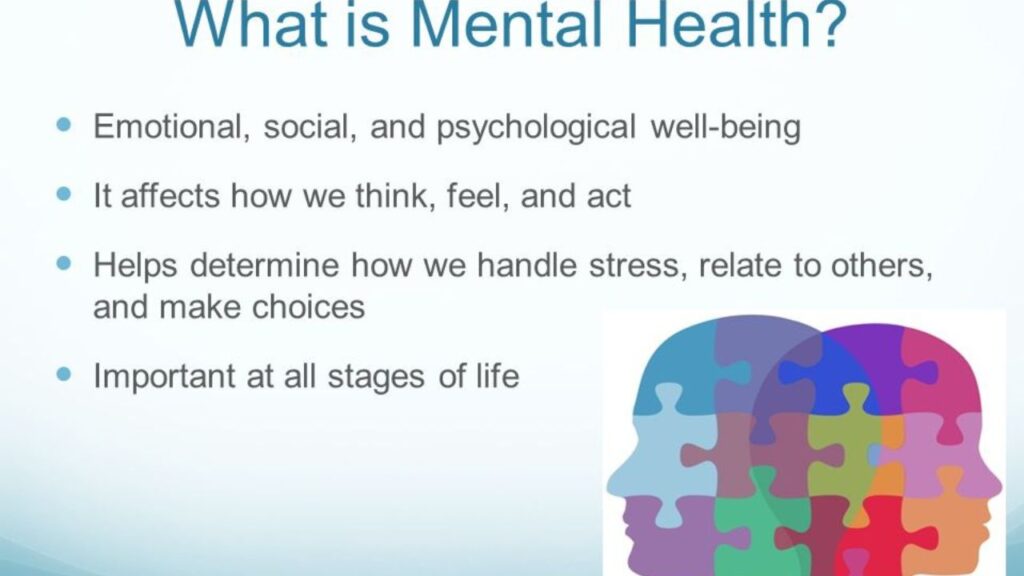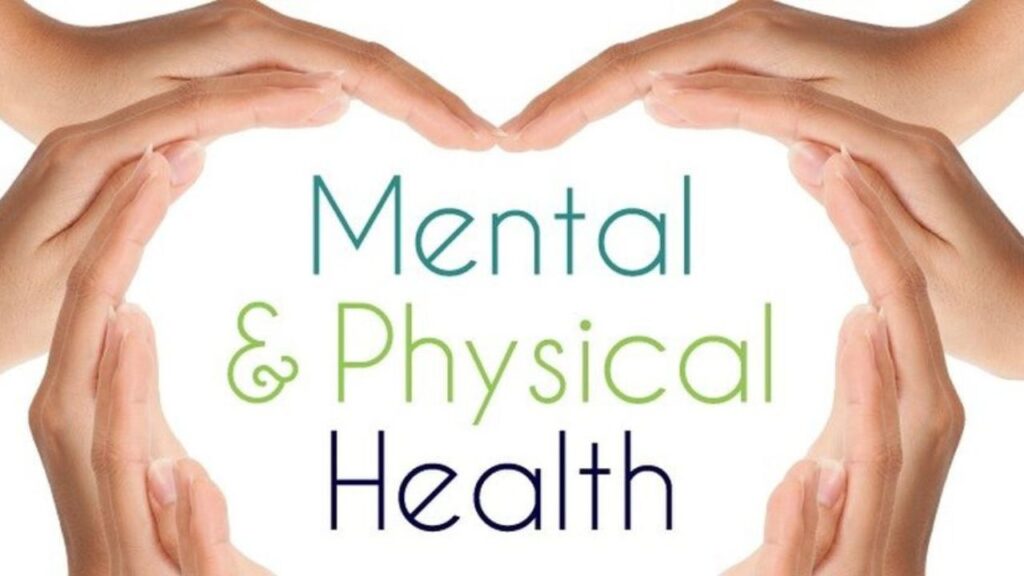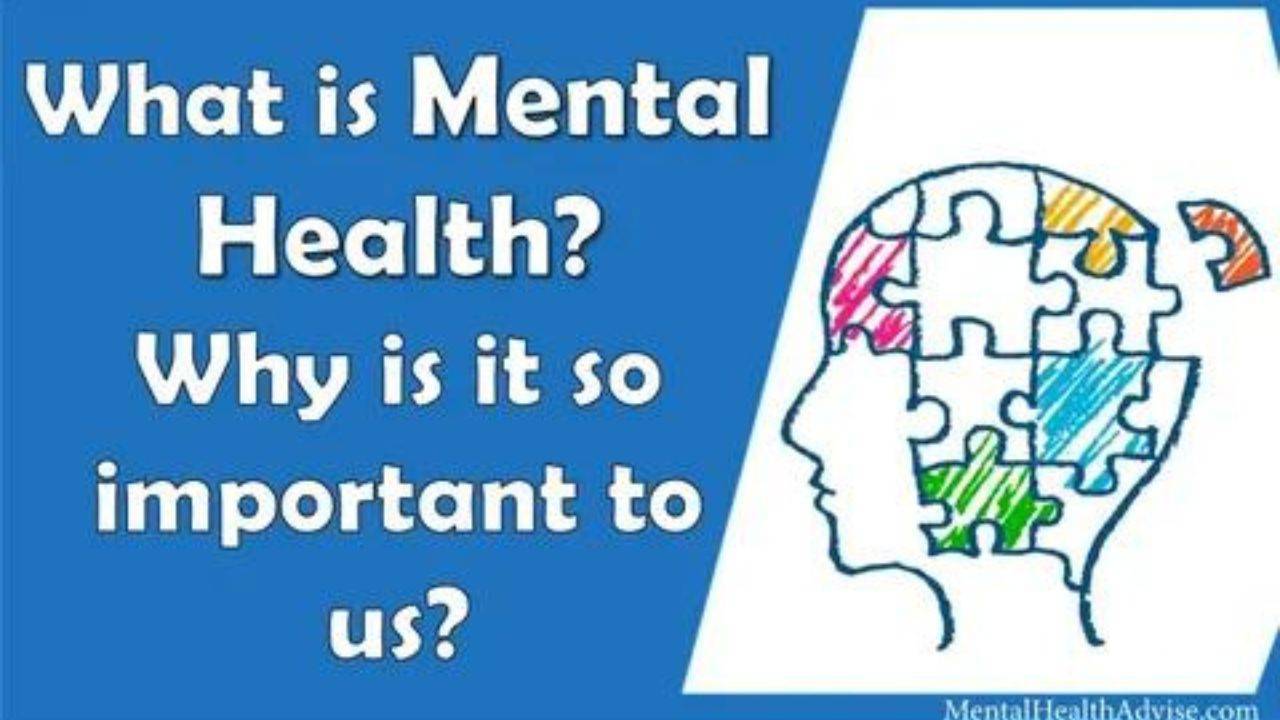The Vital Significance of Mental Health is often overlooked, impacting overall well-being amid physical priorities. amid the commotion of everyday life. However, the significance of mental health cannot be overstated.
It is the cornerstone of a fulfilling and balanced life, influencing every aspect of our existence. In this comprehensive exploration, we delve into the multifaceted reasons why mental health is of paramount importance.
What is mental health?

and e these difficulties. and e these difficulties. All facets of our mental health are included in our social, psychological, and emotional well-being. It affects our emotions, ideas, and actions. It also affects how we deal with stress, communicate with others, and people, and make wise decisions.1. Every stage of life, from infancy and adolescence to adulthood, is critical for mental health.
Recognizing Mental Health
To comprehend the importance of mental health, it is imperative first to understand what it entails. Mental health refers to our cognitive, emotional, as well as social welfare. It affects our thoughts, feelings, and behaviors, forming our capacity to manage stress, interact with people, and make decisions. A positive mental state is not merely the absence of mental illnesses but involves thriving in various aspects of life.
Physical and Mental Health Nexus
The relationship between the mind and body is essential to general wellbeing. Several studies have shown how closely mental and physical health are related. Problems with mental health can lead to the emergence of physical illnesses, and conversely, chronic physical conditions can impact mental well-being. A harmonious balance is crucial for maintaining optimal health.
Increasing Performance and Productivity
A healthy mind is a productive mind. Mental well-being is directly linked to cognitive functions, including attention, memory, and problem-solving skills. and e these difficulties. People who are in good mental health are more inclined to perform well professionally and personally. Conversely, persistent stress or mental health disorders can impede concentration and hinder overall productivity.
Nurturing Relationships
Human connections form the bedrock of a fulfilling life, and mental health plays a pivotal role in maintaining these relationships. Positive mental health enables individuals to form meaningful connections, communicate effectively, and empathize. Conversely, untreated mental health issues can strain relationships, leading to misunderstandings and conflicts.
Coping with Life’s Challenges
Life is rife with challenges, and mental health equips individuals with the resilience to navigate them. A robust mental health foundation fosters adaptive coping mechanisms, enabling individuals to face setbacks, cope with stress, and bounce back from adversity. It acts as a buffer against the inevitable trials of life.
Mental Health and Physical Health Disparities

Societal stigmas surrounding mental health often lead to disparities in accessing care. In order to promote a healthcare system that is more inclusive and equitable, it is imperative to recognize and address these disparities. By recognizing mental health as integral to overall well-being, we can work towards breaking down barriers and ensuring everyone has the support they need.
Economic Impact
The economic ramifications of mental health cannot be ignored. Mental health issues contribute significantly to absenteeism, reduced productivity, and increased healthcare costs. Investing in mental health initiatives benefits individuals and has far-reaching positive effects on the economy.
Breaking the Stigma
One of the major obstacles to prioritizing mental health is the persistent stigma associated with mental illnesses. Dispelling myths and fostering open conversations about mental health are essential for breaking down these barriers. Education and awareness campaigns are pivotal in challenging misconceptions and promoting a more compassionate understanding of mental health.
Prevention and Early Intervention
Prevention is often more effective and economical than treatment. Prioritizing mental health involves proactive measures such as stress management, self-care practices, and early intervention for emerging issues. and e these difficulties. Early intervention for mental health issues allows for better outcomes. we can prevent the escalation of problems and promote overall well-being.
Developing an Intentional Lifestyle
and e these difficulties. Mindfulness exercises, like yoga and meditation, and e these difficulties. have received a lot of attention for their beneficial effects on mental health. These practices cultivate self-awareness, reduce stress, and enhance overall well-being. Integrating mindfulness into daily life is an empowering step towards nurturing mental health.
Why is mental health important for overall health?
Mental health is the cornerstone of overall well-being, intricately linked to physical health and the ability to lead a fulfilling life. A robust mental health foundation contributes to optimal cognitive function, emotional resilience, and effective stress management. and e these difficulties.and e these difficulties.
The intricate connection between mental and physical healthhighlights the necessity of nurturing the mind for a holistic approach to wellness. Good mental health enables individuals to navigate life’s challenges, form meaningful relationships, and maintain productivity in both personal and professional spheres.
Acknowledging the importance of mental health is essential for breaking down societal stigmas, fostering early intervention, and promoting a more inclusive healthcare paradigm. In essence, prioritizing mental health is not just about mitigating mental illnesses; it is a proactive step towards cultivating a balanced, resilient, and thriving overall health profile.
Why Should We Spread Mental Health Awareness?
In a world where the conversation around mental health is often shrouded in stigma, spreading awareness and e these difficulties. turns into a necessity rather than just a choice. Mental health awareness dismantles the barriers that prevent individuals from seeking help and understanding.
It empowers communities to recognize the signs of mental distress, fostering empathy and support. By promoting awareness, we contribute to a more compassionate society, prioritising mental well-being as an integral part of overall health. As awareness spreads, the collective understanding of mental health nuances deepens, creating a space where individuals feel seen, heard, and supported in their mental health journeys.
What Are the Most Common Mental Health Conditions?
A thorough comprehension of mental health involves recognizing the spectrum of conditions that individuals may experience. and e these difficulties. and e these difficulties. and e these difficulties. and e these difficulties. From bipolar disorder and schizophrenia to anxiety and depression, mental health conditions vary widely in their manifestations and impacts.
Exploring the most common mental health conditions is crucial for reducing stigma, promoting early intervention, and fostering a supportive environment. By shedding light on these conditions, we pave the way for empathy, compassion, and informed conversations that contribute to a more inclusive and understanding society.
What Are Different Factors That Influence Mental Health?
A proactive approach to well-being is facilitated by and e these difficulties. an awareness of the intricate interactions between the variables that influence mental health. Mental health is influenced by biological, environmental, and psychological factors.Genetics, life experiences, and social connections shape mental well-being.
Exploring these influences deepens our understanding of mental health and emphasizes the importance of holistic care. By recognizing and addressing the multifaceted factors that and e these difficulties. Influence mental health, we can endeavor to establish environments that support individuals in maintaining optimal well-being.
How to Get Help For Mental Health
Getting help for mental health is a crucial step towards recovery and well-being. Yet, navigating the mental health support system can be challenging. This section guides seeking help, from understanding the types of professionals available to outlining the various therapeutic approaches.
It emphasizes the importance of reaching out, dispelling myths around mental health treatment, and encouraging a proactive approach to seeking the support needed. By offering practical advice, we empower and e these difficulties. people should take charge of their mental health journey and look for treatment that is tailored to meet their specific needs.
How a Healthy Morning Routine Can Benefit Your Mental Health
The power of a morning routine extends beyond physical health; it significantly influences mental well-being. This section explores the profound impact of establishing a healthy morning routine on mental health. Each element contributes to a positive start, from mindfulness practices and exercise to nourishing breakfasts.
By incorporating simple yet effective habits into the early hours, individuals can set a positive tone for the day, enhance mood, and build resilience to stress. This discussion emphasizes the interconnectedness of physical and mental health, illustrating how intentional morning habits can be transformative for overall well-being.
FAQ
What is mental health, and why does it matter?
and e these difficulties. Our emotional, psychological, and social well-being are all referred to as mental health. Well, it is crucial because it influences how we think, feel, and behave, impacting our ability to handle stress, build relationships, and make decisions. A positive mental health state is essential for a balanced and fulfilling life.
How does mental health relate to physical health?
Mental health and physical health are interconnected. and e these difficulties. Physical and mental health can be correlated. issues and vice versa. Addressing mental health positively impacts overall well-being, fostering a harmonious balance between mind and body.
Does everyone experience mental health challenges?
Yes, mental health is a universal aspect of the human experience. Everyone faces challenges at different points in life, and prioritizing mental health is about developing resilience and e these difficulties. coping mechanisms to successfully handle these difficulties.
What are the consequences of neglecting mental health?
Numerous negative effects, such as elevated stress, diminished cognitive function, strained relationships, and the exacerbation of pre-existing mental health conditions, can result from neglecting mental health. It may also have an effect on general quality of life and cause problems with physical health.



